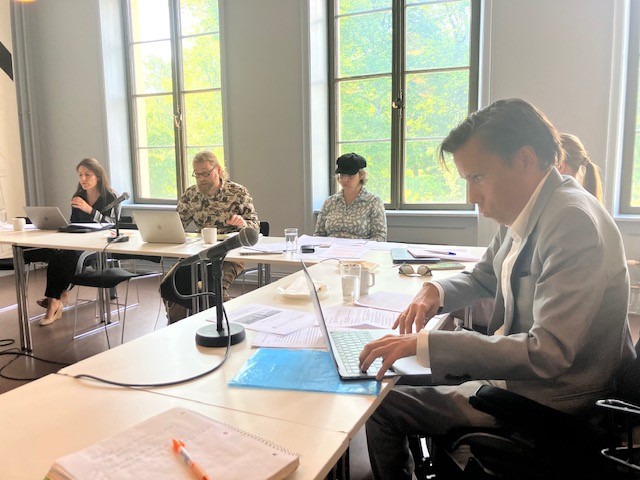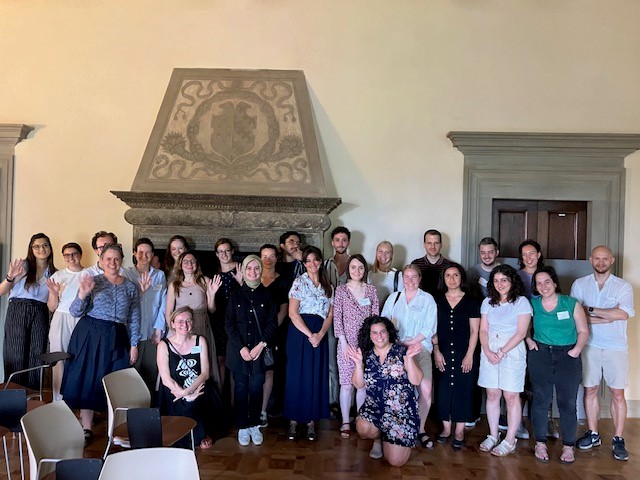Bond, Schoeneck & King Distinguished Professor Cora True-Frost G’01, L’01, along with Professor Jan Grue at the University of Oslo, conceptualized and received a grant to convene leading European disability scholars to present and discuss work on the timely topic: “Unburdening Access and Inclusion: European Tribunals, International Disability Law: from Disability Studies to Studying Ableism.” Funding for the workshop was provided by PluriCourts – Centre for the Study of the Legitimate Role of the Judiciary in the Global Order at the University of Oslo. This workshop was an outcome of Professor True-Frost’s 2022 Fulbright Scholarship at PluriCourts.
Presenters discussed themes including the shift from the medical to social model of disability, the need to shift from disability studies to studying ableism; positive and negative rights in international disability law; and European legal doctrine regarding accessibility, capacity, and reasonable accommodation. Professor True-Frost presented her draft work ‘Unburdening Access: Clarifying Accessibility, Reasonable Accommodation and Anti-Discrimination Rights before the ECHR.”
Professor True-Frost also taught a course on international disability law to European lawyers and judges at the European University Institute Academy of European Law as part of the Summer Human Rights Seminar at the Academy of European Law in Florence, Italy. The course, “Equality Before the Law: The Difference Disability Makes”, encouraged students to analyze the ways in which the United Nations Convention on the Rights of Persons with Disabilities (CRPD) interacts with and sometimes conflicts with conceptions of equality in international human rights law. The course provided a doctrinal and theoretical assessment of major issues pertinent to the substance of disability equality through two central case study inquiries: 1) who has legal capacity before the law, and 2) who is able to exercise a fundamental liberty of movement within their community, their home country, and the global community.


